By Liana Jacob
THIS GIRL was born with the RAREST form of DWARFISM and has DEFIED doctors who thought she wouldn’t SURVIVE BIRTH.
In May 2017, emergency communication specialist, Rachel Gore (32) from Orlando, Florida, USA, and her husband, Michael (31), were at the 31-week ultrasound scan when she found out her unborn baby’s growth was five weeks behind and her size was only half of what it should have been.
The doctor also noticed that she had short arms and legs while her head was the correct size for her foetal age. Two weeks later, after more ultrasound scans, the doctor told them that their unborn baby would most likely have a fatal type of dwarfism and that she wouldn’t survive birth.
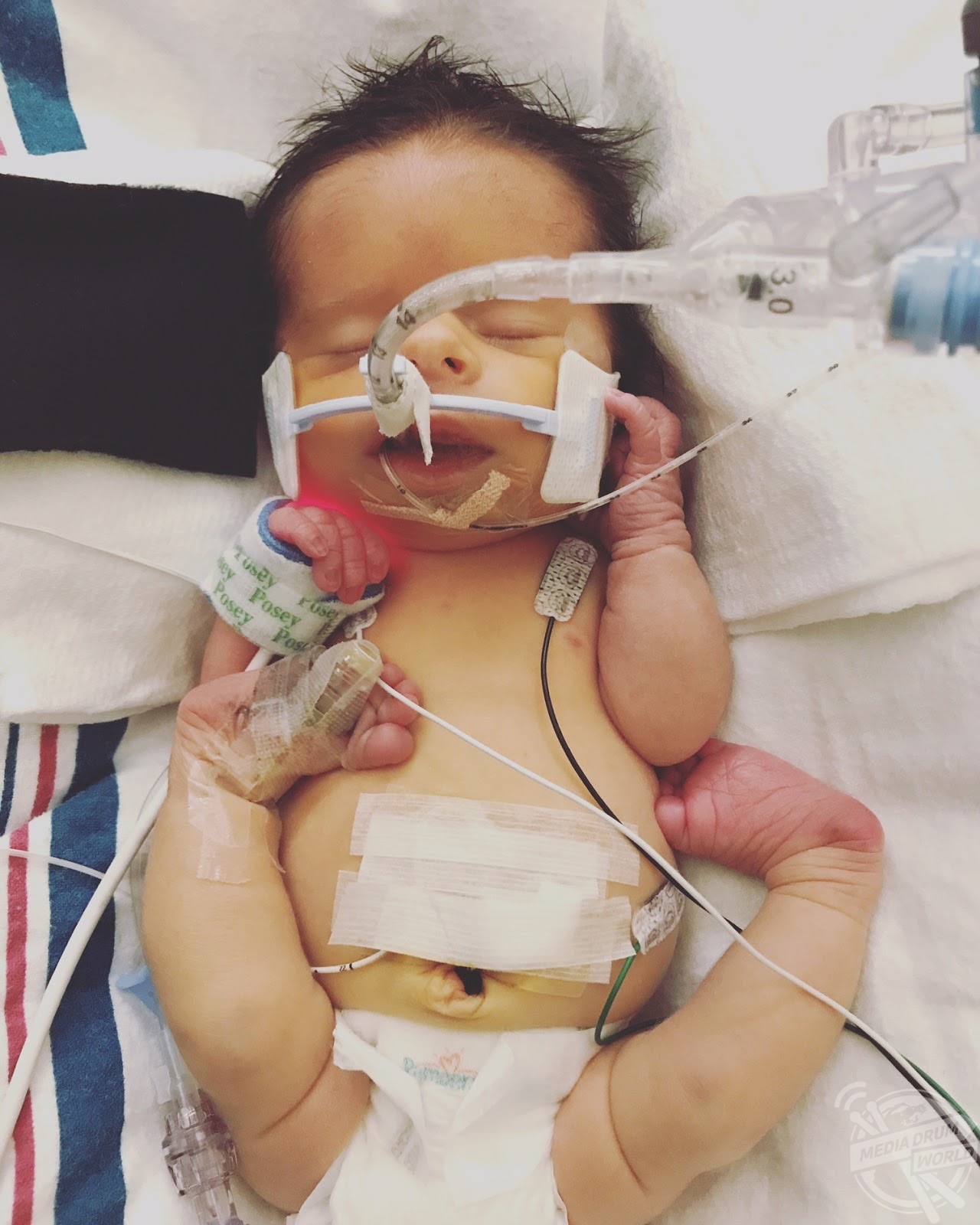
However, in June 2017, when Rachel was 37-weeks pregnant, she gave birth to her daughter, Emma (now 2), via c-section. Due to her small stature, Emma was born with tracheobronchomalacia (TBM), which means that she had floppy airways that caused her to pass out several times a day for four months.
When she was just six months old, she was flown to CS Mott Children’s Hospital, which was about 1,150 miles away. Four months later, they travelled to Orlando, where Emma underwent a tracheotomy, a life-saving surgery where an incision is created on the anterior aspect of the neck, opening a direct airway in the trachea. She had another surgery called median sternotomy, where dissolvable 3D printed splints were placed inside her body to hold the airways open and this stopped her passing out. She was then diagnosed with Meier-Gorlin syndrome, also known as primordial dwarfism, which is the rarest form of dwarfism, with only 67 reported cases worldwide.
At just 2ft 2in, Emma has proven doctors wrong by living past her predicted age, despite not being able to walk or talk yet. Many strangers have shown sympathy and remorse over Emma and her condition, with one man even comparing her situation to his friends who have died in the battlefield during the Vietnam war.
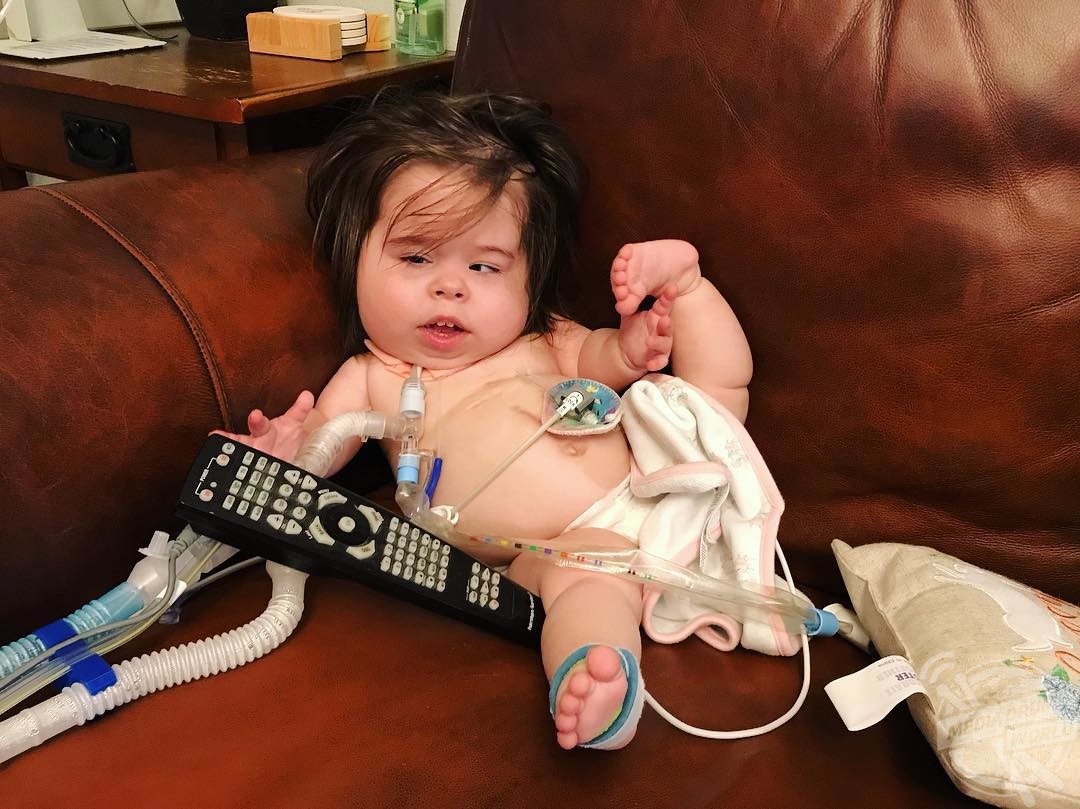
Whilst the comment made them laugh, they want to prove that Emma is a strong little girl and they are trying to encourage people not to feel sorry for her by illustrating her journey on Instagram.
“When I was thirty-one weeks pregnant, we found out that Emma’s growth was five weeks behind and her size was only about half of what it should have been,” Rachel said.
“They saw she had short arms and legs, but her head was the correct size for her foetal age. Two weeks later, after many more ultrasounds, the doctor told us that she probably had a fatal type of dwarfism and that she wouldn’t survive birth.
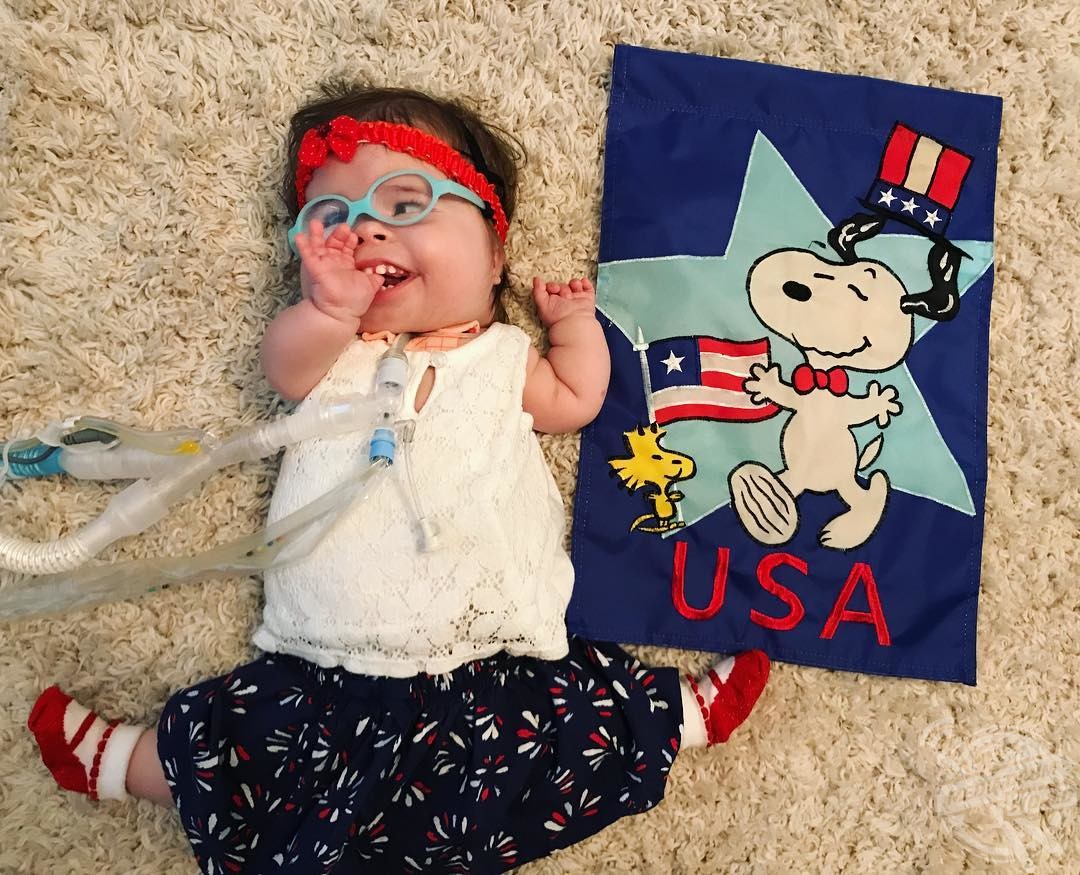
“Luckily for us, that was not correct and even though she had to be intubated in the NICU and hooked up to lots of machines to help her little three-pound body, she was alive.
“Emma has tracheobronchomalacia (floppy airways) and she would often pass out several times a day due to this condition.
“In December, when Emma was six months old, we flew to CS Mott Children’s Hospital in Ann Arbor, Michigan, for a surgery that would save her life. Dissolvable 3D printed splints were placed inside her body to hold the airways open. She finally stopped passing out.
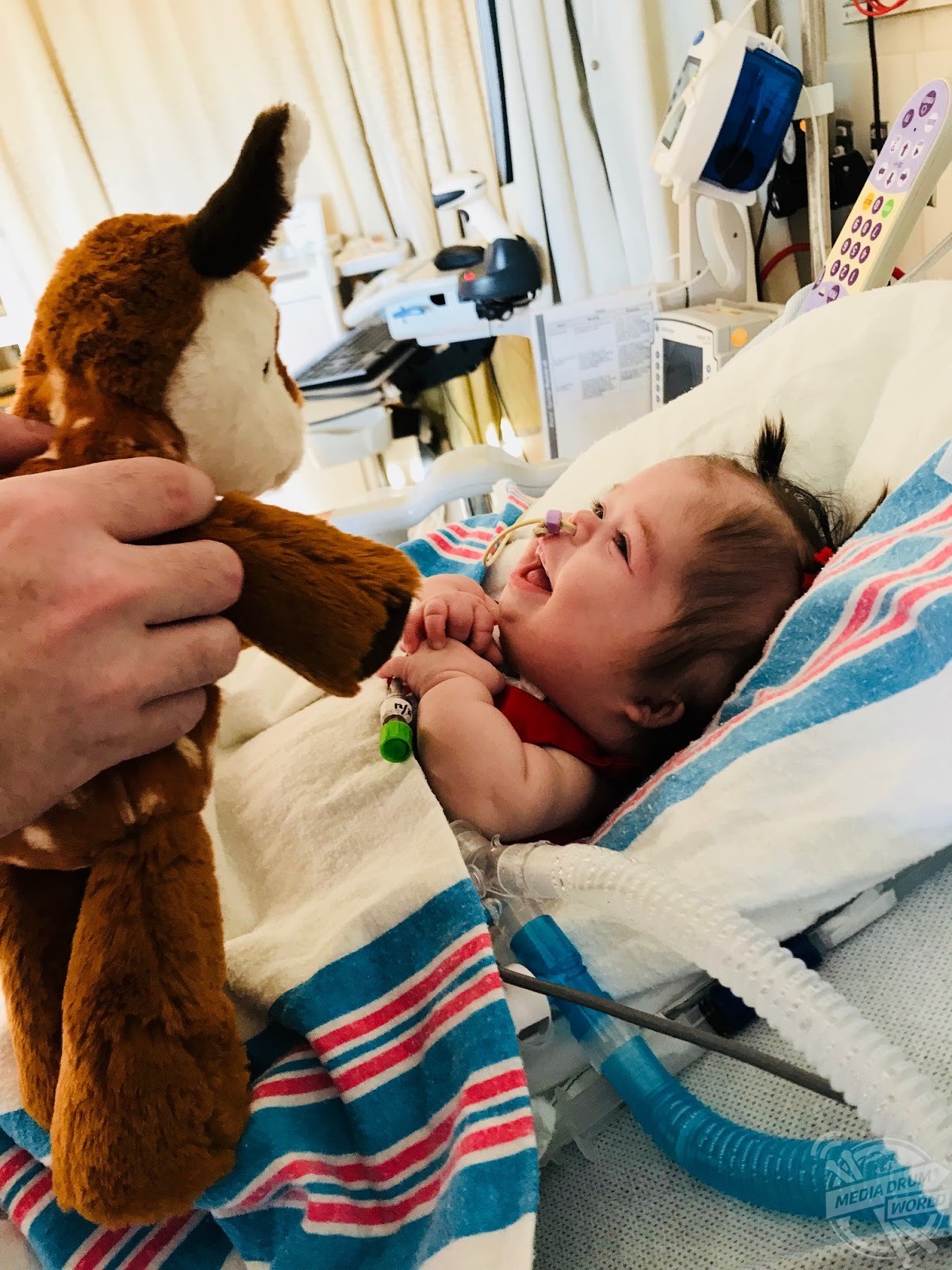
“While in Michigan the geneticist was able to determine that Emma has Meier-Gorlin syndrome, a rare type of primordial dwarfism.
“Characteristics of this syndrome include the malacia; very small ears and backwards bending legs (called genu recurvatum).
“She does not have kneecaps. Her legs have been somewhat corrected with braces, however, at almost three years old, after many milestones that are huge for us, Emma has not yet learned to walk.
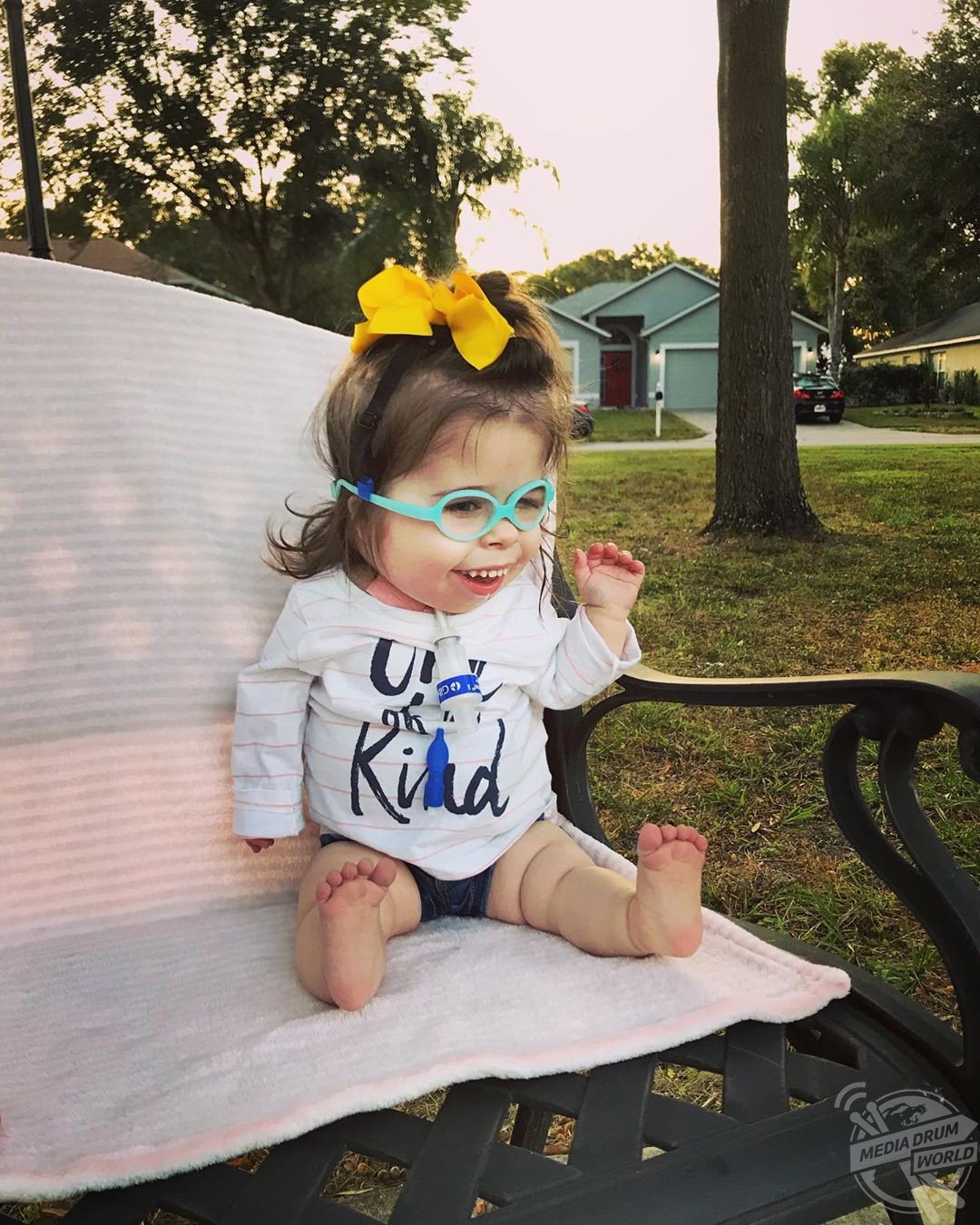
“Once we had our answer, we began reading the very little bit of information that is on the internet about Meier-Gorlin Syndrome.
“I was mostly worried about her survival, not as concerned about her size or unofficial diagnosis. We just really wanted a healthy, living baby, especially after I had a miscarriage in April 2016.”
Since she was born, Emma has had numerous surgeries including a tracheotomy, Nissen fundoplication, for gastro acid and reflux and gastrostomy. She has also had a thoracic surgery. A pneumothorax surgery for her collapsed lung and several bronchoscopies, an endoscopic technique of visualising the inside of the airways for diagnostic and therapeutic purposes.
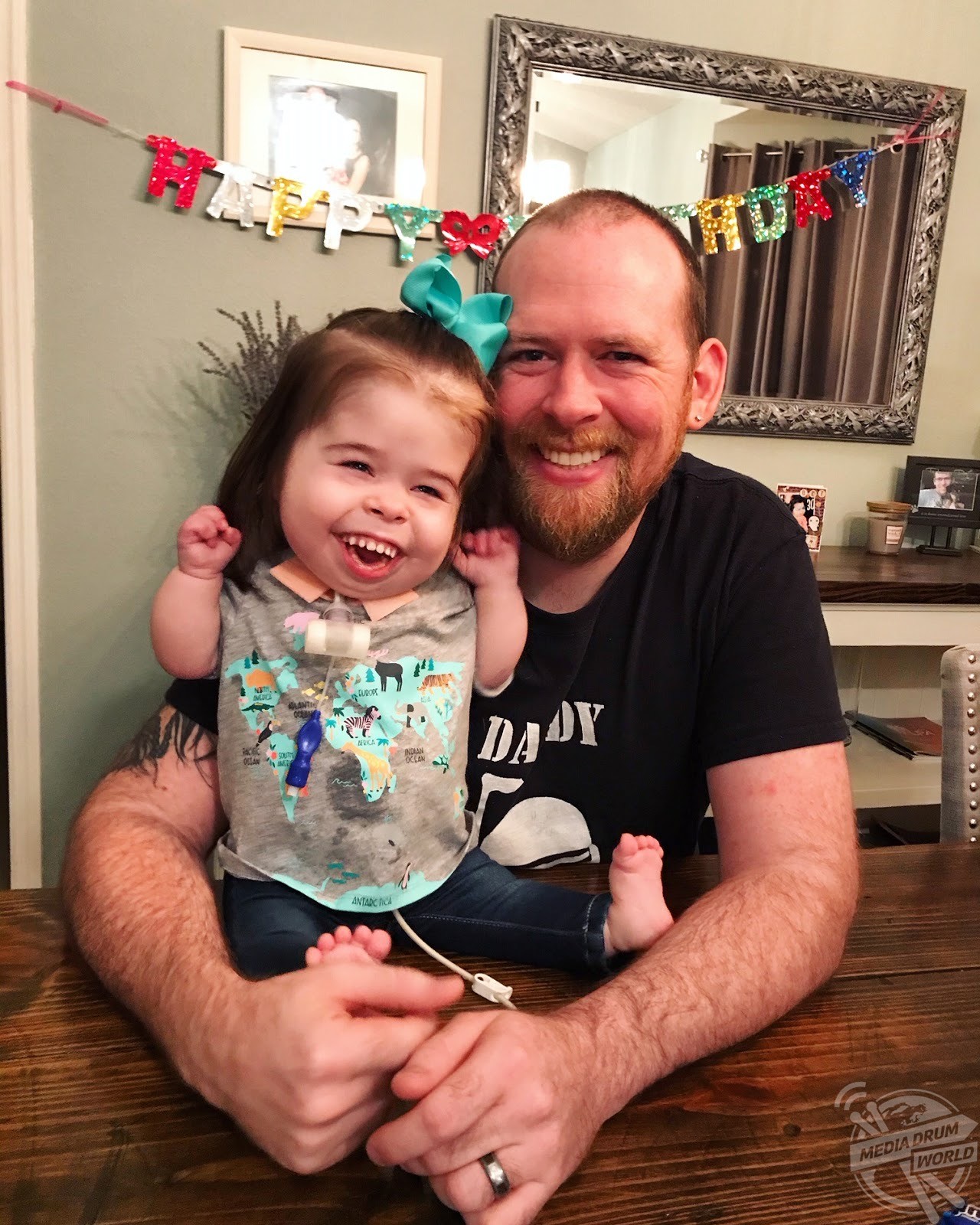
In August 2018, Emma started physical therapy at home once a week to help her with her speech and mobility and she currently uses a ventilator to help with her breathing.
Rachel admits that there are many things she thinks about regarding Emma’s future, including the possibility that she may get bullied at school or whether she can have children in the future. Despite her worries, she wants to help mould her into a strong woman who can stand up for herself.
“We get all sorts of comments from people ranging from ‘she’s so beautiful’ to ‘that’s the saddest thing I’ve ever seen’,” she said.
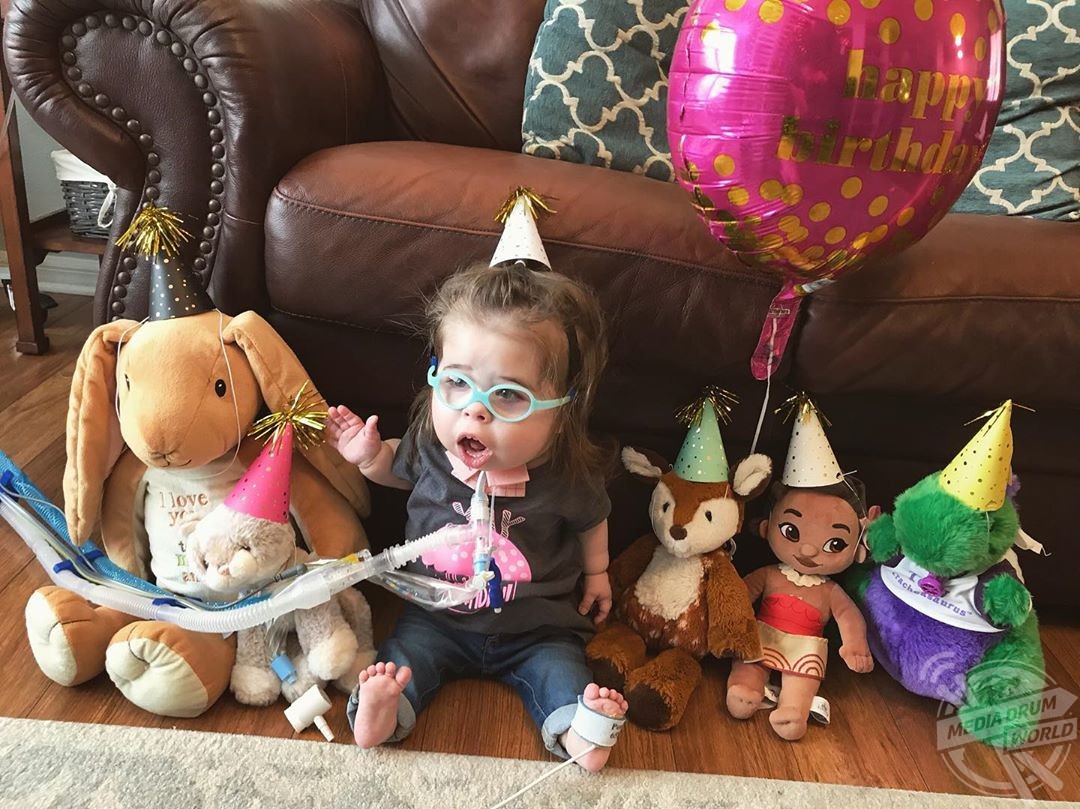
“I think mostly people say stuff in attempt to comfort us, when in reality we don’t need that. Don’t get me wrong, I love to hear people say sweet things about our beautiful girl but sometimes I think they feel sorry for us when the reality is quite the opposite.
“We are so proud of Emma and all the amazing accomplishments she’s achieved. We get a lot of people staring and watching us, but we don’t mind.
“Once, when we were leaving a routine doctor appointment, an elderly man wearing a Vietnam hat got into the elevator with us.
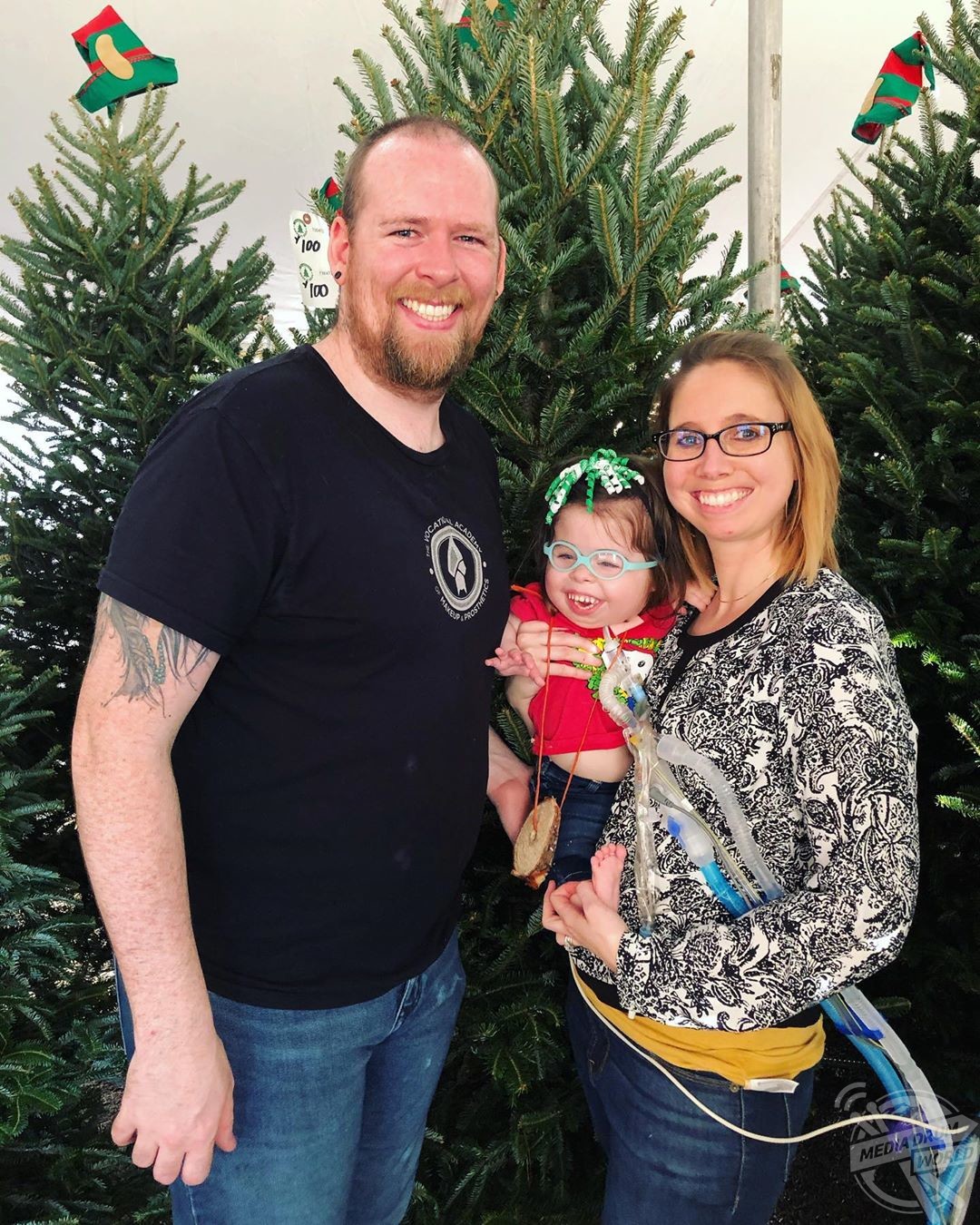
“He looked at Emma and started to get somewhat emotional and said, ‘That’s the saddest thing I’ve ever seen’. I looked at him and saw his hat.
“My brain filled in the rest of what I was expecting him to say: ‘And I’ve seen my friends die in the battlefield during ‘Nam’.
“While that comment may have come off as a bit callous, I don’t believe he meant it to be, in fact, Michael got a kick out of it.
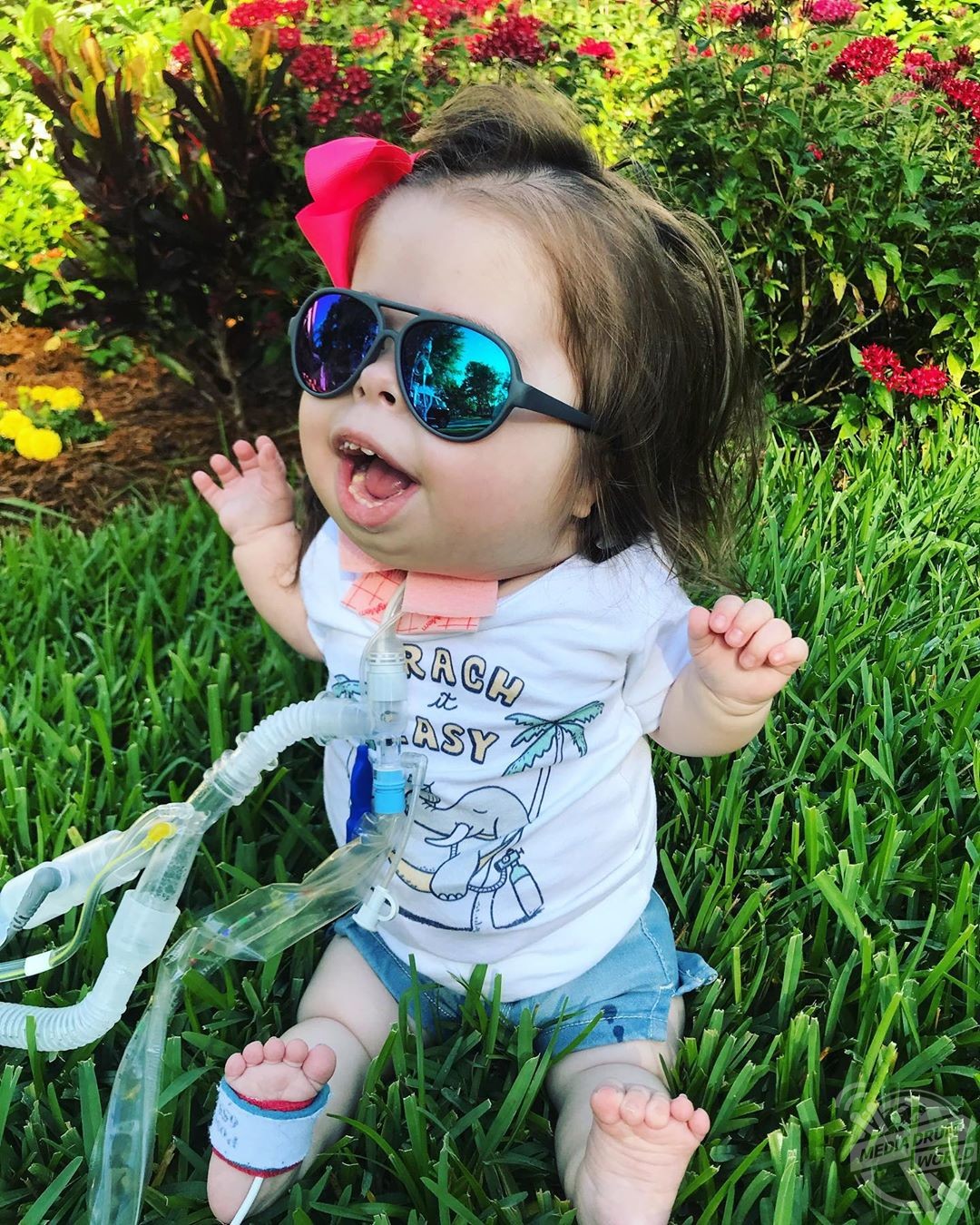
“Maybe we have a sick sense of humour, but after stepping out of the elevator Michael couldn’t help but laugh; for Emma to be compared to that just made him chuckle.
“But again, I know he didn’t mean it in a bad way. We just take comments with a grain of salt and move forward, but that one will always make me laugh.
“The toughest part of this journey was while she was in the NICU for 323 days. Doctors and nurses told us to expect her not to live or not survive past her current age, or to prepare for her death in case it happens since she had so many medical complications.
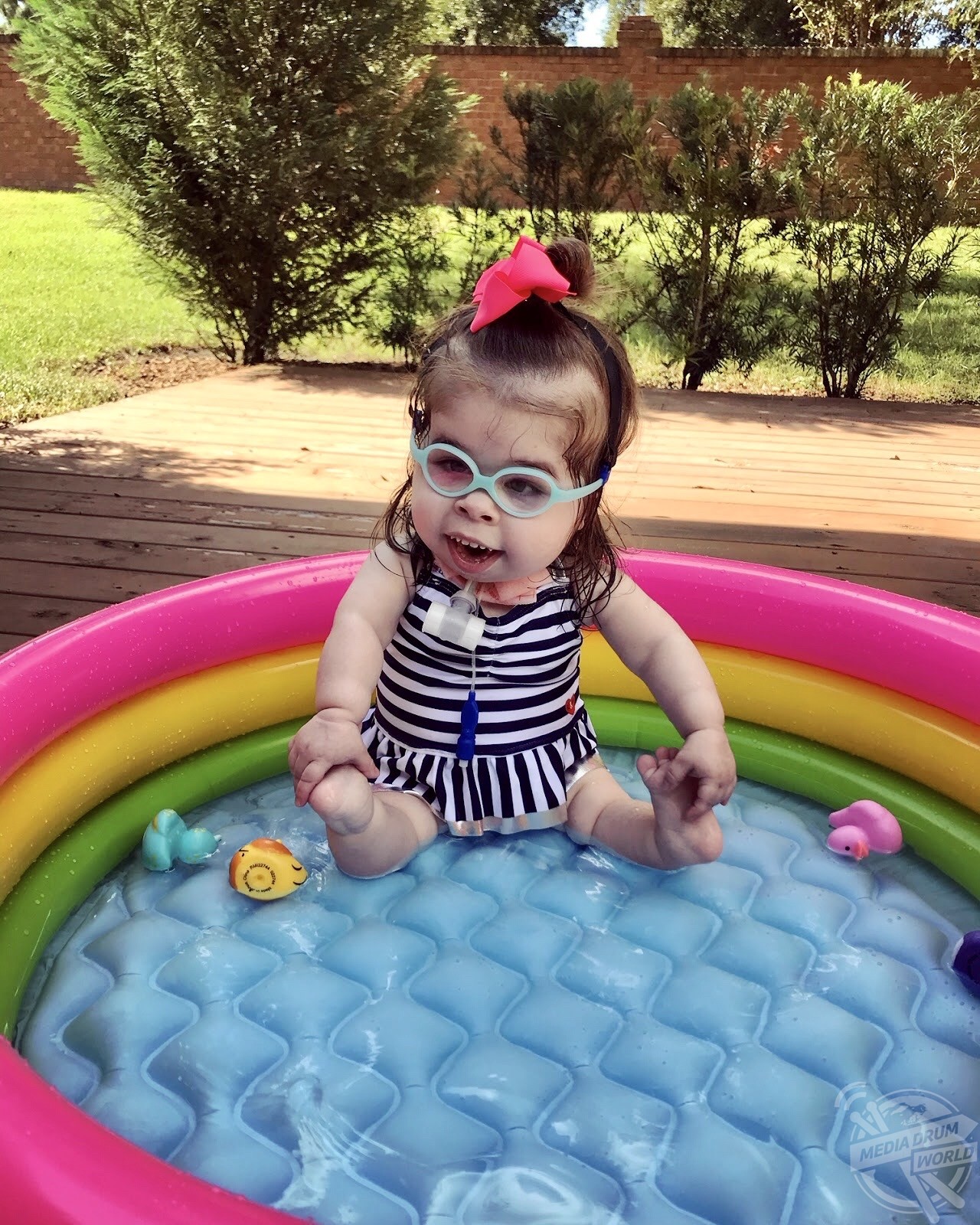
“It was also tough having to work full time and trying to squeeze in time to see her in the NICU after work, especially since I work twelve-hour shifts.
“Michael and I both believe in God, so we prayed a lot. We made a big deal out of any progress that Emma made, even if it was a smile that we hadn’t seen all week.
“I wonder about her future; how old she will be when she can walk and talk? Will she need surgery on her legs? How many more years will she need her ventilator? Will she always need her trach?
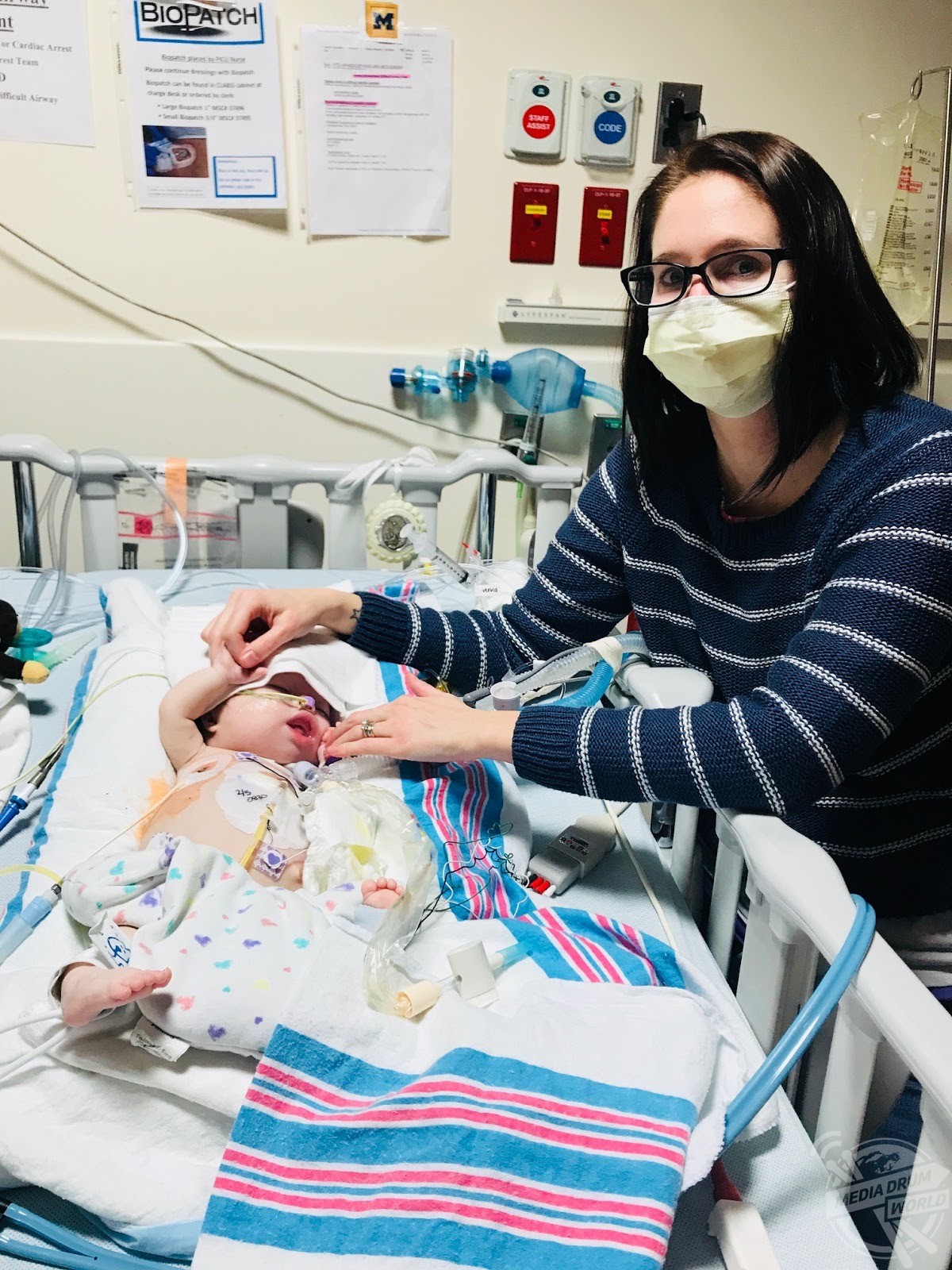
“I worry about her being bullied, hoping she grows a strong personality and doesn’t let it bother her. Or that whatever school she goes to has strong anti-bullying policies.
“I wonder if she will be able to have her own kids. I believe that is something that is uncertain with females with Meier-Gorlin syndrome, due to having a very small uterus.
“But I also think about regular things, like who will her favourite Disney princess be? Or her favourite movie? What will be her favourite colour, and what jobs or career will she choose?
“Our message to other families going through similar situations is make the best of what you have. Be happy and blessed that you have a child who is alive. Not many families of sick children get that, and you should be blessed to have your child.
“I firmly believe that people and families are ‘chosen’ to take on the task of caring for a special needs child. You should feel honoured that the universe has chosen you to have such a special and beautiful child.”
For more information visit Rachel’s blog: www.emmamgore.blogspot.com/






